How We Act When We're In Love
Who do you become when you meet the love of your life? ❤️
Table of Contents
Many moons ago I worked as a ghostwriter for an obscure publisher. It was an easy gig. DIY shampoo, gardening tips, holiday shopping lists. Pest control, if I was naughty. But every once in a while, I was assigned “love” for a young lady’s self-help blog. Those were hands-down the toughest days at the office.
For one thing, I’d never actually been “in love”. I had, however, taken lit and philosophy in undergrad and watched the Before trilogy enough times to convince myself I was an expert.
The writing was vapid, insincere, and hokey as hell.
But my client loved it and my editor circulated it. Now my colleagues wanted the name of my muse and wouldn’t take The Beatles for an answer. I didn’t understand what was happening. I knew I’d written something utterly cheesy, but everyone was eating it all up. What in John Lennon’s name was going on?
Years later I met someone and felt the hot-bodied rush of bad poetry, cringey love letters and embarrassing mix-tapes. I finally realized it wasn’t my empty words that had seduced the reader all those years ago; it was the romantic seeing beauty in the unremarkable.
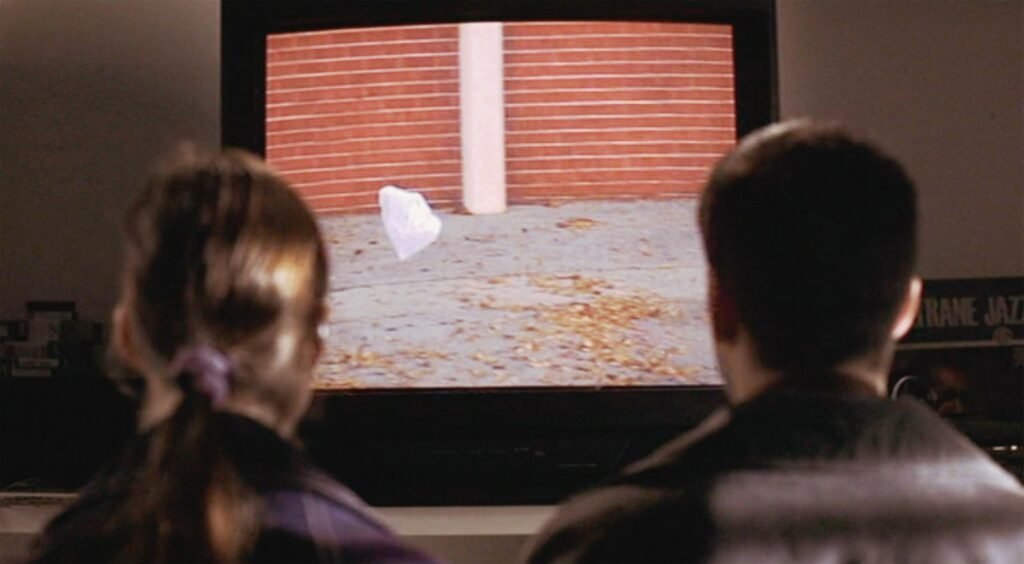
Love vs. being in love
What is it about “love” that makes us see things we normally wouldn’t? Do things we normally couldn’t? What do we even mean by being in love? There’s no shortage of love songs in this sonically abundant planet. So naturally I turned to music for clues. I pulled out an artist from each decade expecting elation, euphoria—maybe even some sage advice.
Instead, I awakened tormented spirits from their ancient slumber. Weeping, wailing, whimpering. Billie Holiday? Pain. Nina Simone? Pain. Johnny Cash? Pain. Jim Morrison? Pain. Jeff Buckley? As in the guy who came up with this serotonin-sucker of a song? The same guy who allegedly drowned singing Whole Lotta Love? Take a wild fucking guess.
At this point, I’m finding emotional and physical agony everywhere I look for love—even in children’s cartoons. I’m more confused than ever. Is being in love kind of like being in pain?
I quickly find that it can be… when you’re heartbroken.
Studies have shown that, in some cases, emotional stress can be so devastating that it can literally change the shape of your heart.
In the 90’s, Japanese researchers referred to it as takotsubo cardiomyopathy due to the swollen heart’s resemblance to a takotsubo pot, an octopus trap used by Japanese fishermen—a condition also known as broken-heart syndrome.
Clearly this is a side-effect. But what about the good stuff?
Luckily the early phase of being in love feels like a powerful painkiller, thanks to a spike in oxytocin—the commonly misunderstood “love hormone” that makes us warm and fuzzy toward those we identify with and aggressive toward those we don’t—and dopamine, the “feel-good” hormone that influences mood, reward, and motivation. In fact, this study even showed that thinking about the person you love activates the same reward area in the brain that lights up when you win a ton of cash… or take cocaine.
Well, sign me the fuck up.
Just as I’m going down this rabbit-hole, I stumble upon an old Lauryn Hill song featuring an endearing classroom discussion on this very topic. The conversation unfolds in brief interludes throughout the record, culminating in this tender outro:
Student 1: There’s a difference between loving somebody and being in love with somebody.
Teacher: Well, you tell me. What’s the difference?
Student 1: Okay. You can love anybody but when you’re “in love” with somebody, you’re looking at ‘em like “this”. You’re taking that person for what he or she is no matter what he or she look like or no matter what he or she do.
Student 2: You fall in love, you can fall out of love. You might stop being in love with them but you is not gonna stop loving that person.
Student 3: Maybe sometimes they’ve never been loved, they’ve never been in love before. They don’t know what the feeling is to be loved.
Teacher: She killed it. We could end that conversation with that, right?
Like many, I always wondered if this exchange was scripted. Sure enough, it’s a real conversation that took place in 1998 between a bunch of kids in Hill’s neighborhood and Ras Baraka, an educator who went on to become the mayor of Newark.
Twenty years later, the New York Times interviewed the same kids, now adults, and captured their reaction to the tape. “I was wise beyond my years,” said 36-year-old Shaquan Sutton. “I had seen kids my age who didn’t have what I had, which was a loving family. They would just do things that would be considered bad behavior.”
What’s powerful about this—and the reason why I mention it—is that we’re rarely encouraged to think critically and subjectively about love when we’re young. “Love can save the world,” we’re told in hymns, story books, and school plays. We know it’s a good thing. A powerful thing. But we grow up romanticizing “the one” and genuinely believe it’s the holy grail of personal fulfillment. It better be if it’s supposed to save the world, right?
Learning how to love

The problem is, love in theory and love in action are two different things. Regardless of what science or religion teach us about love, it’s the kind of emotional and psychological safety we receive in childhood that often ends up shaping our perception of love as an adult.
To kids of an amicable divorce, it might present itself as a complicated grown-up emotion. To kids of an ugly divorce, it might be something that doesn’t last. To kids who witness verbal or domestic abuse, it might be tied to personal worth. To kids who grow up in poverty, it might not be enough. To kids who grow up with a silver spoon in their mouth, it might be something you can own, control, sell and buy.
To many, it might not even exist. Just an emotional fever—at once magical and real, elusive and specific, divine and disposable, manic and depressive. Through these lofty ideas, love can easily become what it fundamentally isn’t supposed to be: unhealthy.
It’s only later in life that we realize love can also be unrequited. That’s a hard pill to swallow, especially if you’re not used to hearing “no”. And particularly damaging if you believe deep down you don’t deserve to be loved. Perhaps this is why some psychologists describe love not as an emotion, but as “the outcome of specific interpersonal dynamics”.
That’s where finding something you care about—something that has the power to evoke desire, empathy, beauty—can be incredibly healing. In fact, studies suggest that engaging with art can generate the same neural response as when you’re in love. Dr. Stephanie Cacioppo, a neuroscientist specializing in human connections explains:
“My research on the neuroscience of love and passion suggests that both art and love activate similar brain areas, like the visual areas important for admiring the art, but also a network called the reward network that pushes dopamine, the feel-good neurotransmitters all over the brain. Art also activates, just like love, this brain area that is important for identification and self-expansion and identity, the angular gyrus. So both art and love can serve as a catalyst for self-expression and self-expansion, two keys to lasting love.”
We see this play out in the sentimental Italian masterpiece Cinema Paradiso, where a young boy nicknamed “Toto” befriends Alfredo—a film projectionist in small town Sicily—who introduces him to the enchanting world of motion pictures.
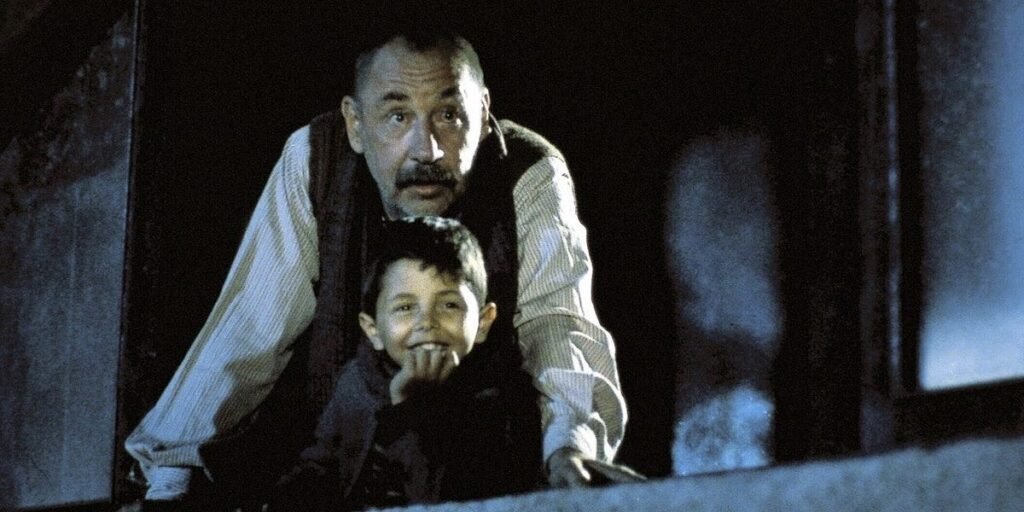
Alfredo takes Toto under his wing at the town’s only movie theater where he’s quickly swept away by the magic of film. The pictures give him hope, a reason to smile—even at the darkest hour when he learns his father will never return from war.
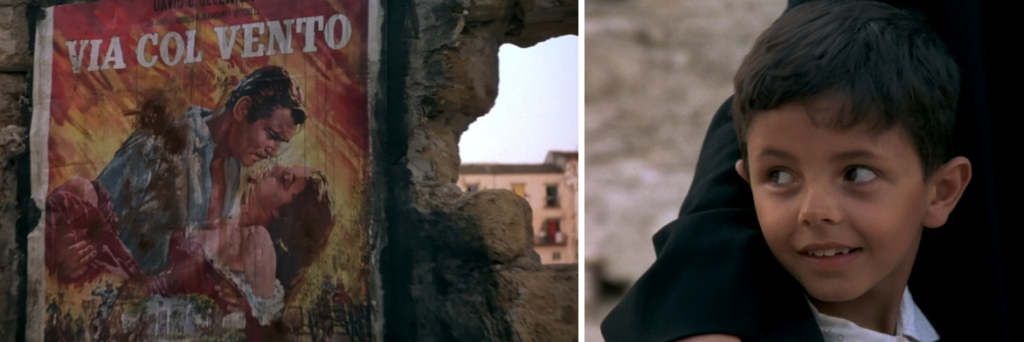
Over the years, Toto learns the ins and outs of projecting a film and develops a close bond with Alfredo who becomes something of a father figure. Later on, he’s smitten by a girl and seeks Alfredo’s advice. He is told a cryptic tale about a poor soldier who falls in love with a princess. The soldier confesses his love, but to win over the princess, he must pass the ultimate test: wait a hundred days and a hundred nights. The valiant warrior accepts in a heartbeat but after a grueling ninety-nine days, he gives up.
It foreshadows the test Toto must now face in his own life. Is love worth waiting for?
Alfredo refuses to elaborate on the sad story, but we read between the lines as he withdraws from the world near the end of his days. Not long after, a heartbroken Toto returns to Alfredo for advice and is encouraged to leave town and never look back. “Whatever you end up doing, love it. The way you loved the projection booth when you were a little squirt.”
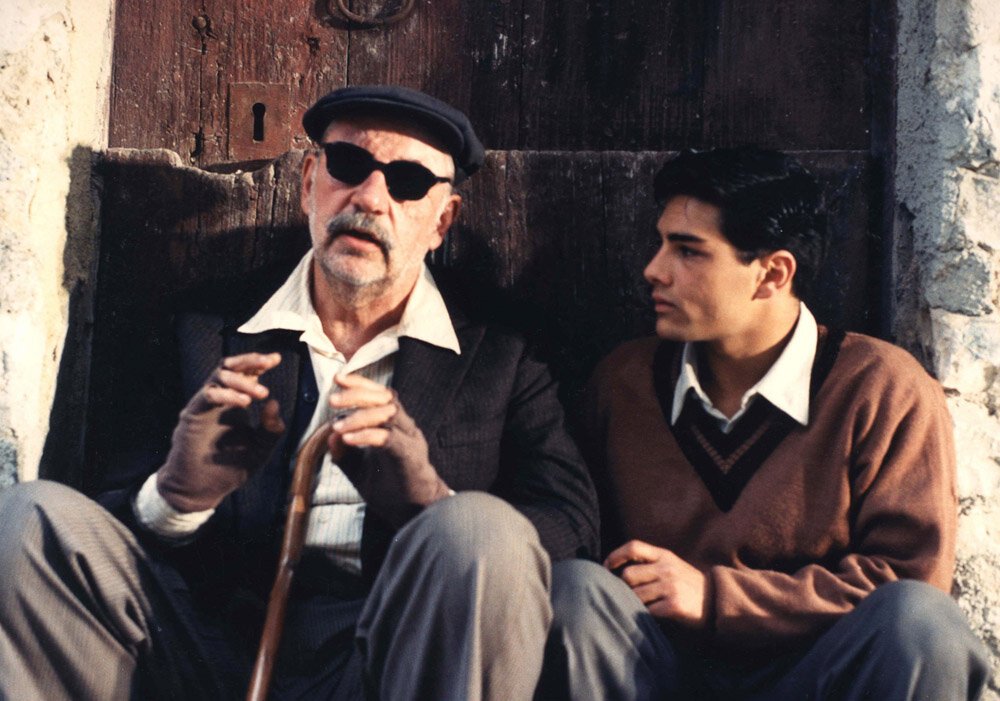
It’s a breathtaking film made with such love and religious sanctity for cinema that you almost take for granted the attention to detail and technical precision that went into crafting it. This is made more powerful at the end when Toto returns to Sicily thirty years later as a successful filmmaker—wounded by heartbreak and healed by a film reel.
It’s a touching example of dedicating your life to something you love deeply, the sources of inspiration that lead you there, and the surprising ways in which it gives back—like a flame that never goes out.
Love as a behavior
Nostalgia can be comforting, but it’s not a great place to live. At some point, we need to make peace with our past and move on—and that’s easier said than done. Because not only do we form notions of “love” based on what we’re made to believe is good and bad behavior, but more importantly, how it should be rewarded and punished.
After all, there’s a reason we inadvertently pick partners that aren’t great for us. It’s not because we want to inflict pain on ourselves; it’s because we’re trying to survive the only way we know how. We repeat what we don’t repair.
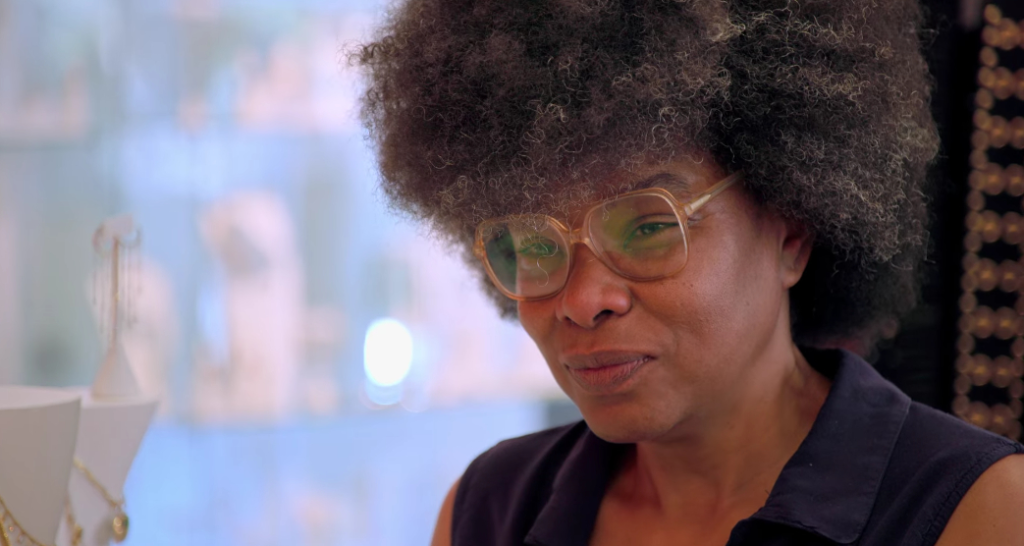
In one particularly touching episode of Queer Eye, we meet 53-year-old Nicole Owens, a single mother of three kids. We learn that Nicole grew up in a strict household and married young, only to find 30 years later that her husband (now ex) had been secretly married to another woman. During the painful marriage, she felt controlled, just as she did when she was young.
Later in the show, she reveals the heart of the problem in a tearful confession about her mother:
“I'm mad. I'm her only daughter. She only has two kids. And she doesn't speak to either one of us. How can you be a mother and not want or have a relationship with your kids? I needed her. I still need her. I needed her to tell me and show me that she loves me. And I feel one of the reasons why I picked a horrible partner is I was not shown how to pick a partner. So then the first man who showed me a little bit of attention... […] I protected myself and my family. I was a hardworking mother who was always there for my children.”
This is a painful testimony but a powerful one. Many of us aren’t able to break the generational curse because we’re incapable of seeing anything beyond our own pain. But here you see a person, just like you and me, who continued to give and receive love without the necessary emotional support. It’s not easy, but it’s possible—and when it happens, it’s downright liberating. Healthy adult love begins with self-love. Sappy but true.
Now let’s get into common complications you might experience—and how you might respond to them—when you’re struck by cupid’s arrow.
Love at first sight
Let’s say you’ve made peace with your past and feeling ready to get into a romantic relationship. Are there tell-tale signs of finding the right person, or is it just hyped up by pop songs and romance novels?
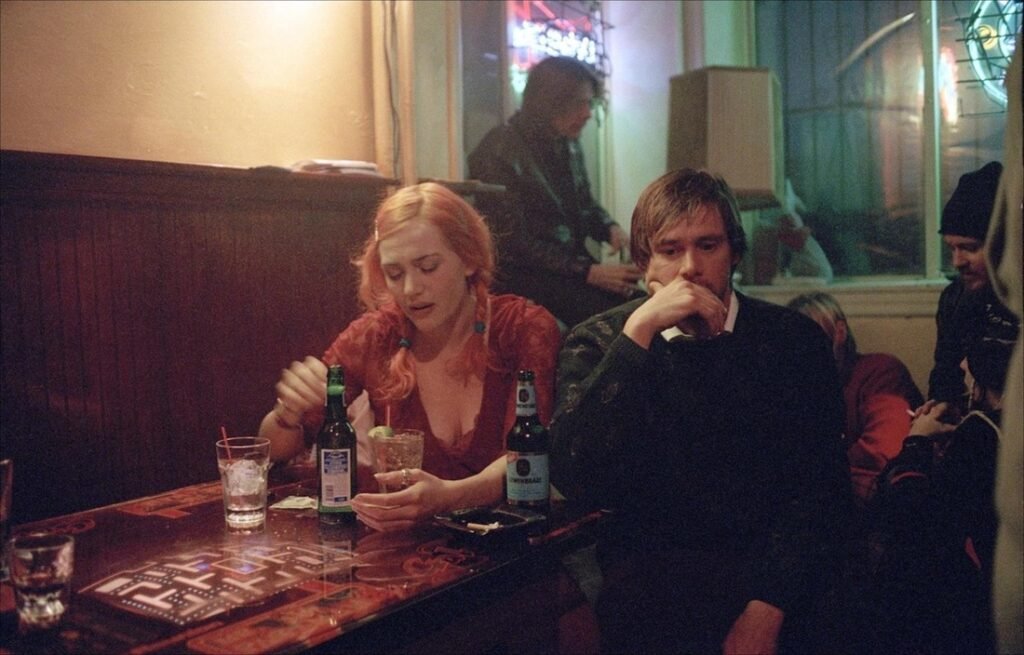
According to the late biological anthropologist Dr. Helen Fisher, love at first sight is a very real thing. It comes from your “personal love map”—based on conscious and unconscious things you’re looking for in a partner—that instantly triggers your brain circuitry for romantic love. In an interview with WIRED, she explained why we keep chasing the feeling even after getting our hearts broken:
“People pine for love, they live for love, they kill for love, and they die for love. I do think that it is an addiction, because we found activity in a particular brain region, it's called the nucleus accumbens. That particular brain region is active in all of the addictions, all the substance addictions, all the behavioral addictions like gambling, and it becomes just as active when you've been rejected in love. And when this person says, "This shit is too much to handle," well, we all do handle it. The vast majority of us do get over it. And I've been able to prove in the brain that time does heal because it is our survival. It is a survival mechanism. It evolved millions of years ago, and it will be with us millions of years from now. Romantic love is primordial, it's adaptable, and it's eternal. So this shit will always be too much to handle—but we’ll do it anyway.”
Sometimes we’re just too hard on ourselves, especially since we don’t have as much of a say in the matter as we like to think. Which brings us to our next point…
Faulty decisions
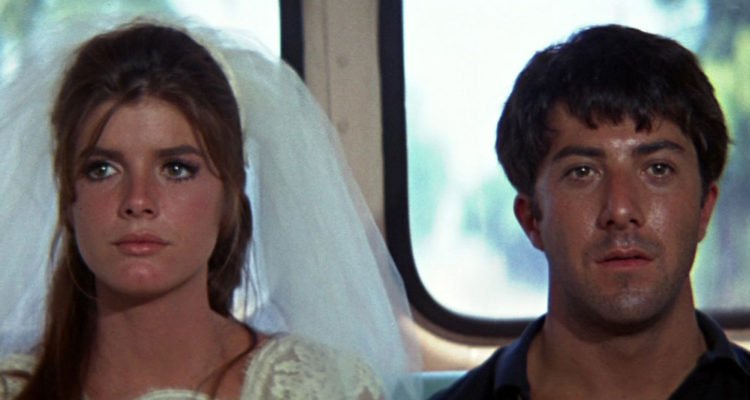
Ever look back on a relationship and ask yourself, “What the hell was I thinking?”
Don’t beat yourself up over it. According to research, when we’re in love, the part of our brains responsible for making critical assessments, including our propensity for fear and social judgment, shuts down. While dopamine and oxytocin go wild, so does our stress response. And as cortisol jumps, serotonin drops, creating that funny feeling. A strange medley of obsession, infatuation, intrusive thoughts, sleepless nights. Probably not the best time to say “I do”…
Imagine the disaster that ensues if you fall in love, young and aimless, while everyone and their neighbor keeps telling you what to do with your life.
Most likely, you’d rebel and make regrettable decisions in the process—kind of like Ben from Mike Nichols’ cult classic. But hey, we live and we learn. Well, we try to, anyway.
Choosing "the one"
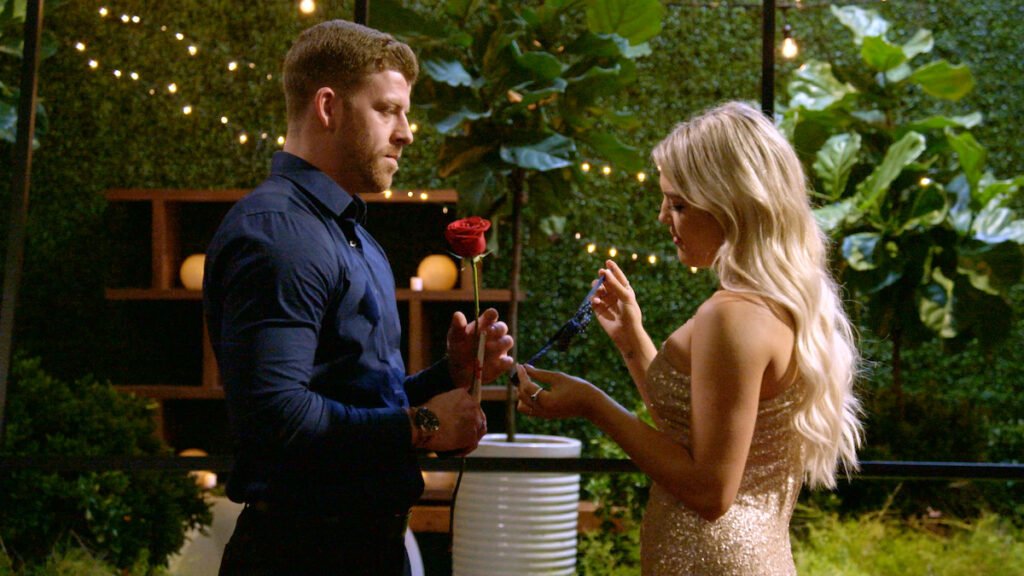
They say “love is blind” but there’s so much more to it than what we see on the slightly disturbing reality TV show by the same name.
Faulty judgment gets faultier when there’s a life-altering decision made around a stopwatch. Add cameras, professional lighting, producers and a crew to this hormonally flammable drama, and now you’re dealing with the additional stress of being canceled or targeted by an angry mob that will almost certainly project their own insecurities and heartbreak on you. Great reality television with potentially awful consequences.
Part of the problem is that we rarely see a relatable person on this show. Instead, we see that entitled mean girl from high school and that toxic ex who lied and cheated. These conclusions are inevitable due to the show’s poor casting and lack of mental health screening, almost encouraging emotionally volatile people to bring the worst version of themselves on camera.
Of course, that doesn’t mean assholes should get a free pass for bad behavior. But it’s showbiz. Boring doesn’t sell. And shows like this are often designed to give that particular brand of asshole more airtime. Without proper counseling or mental health expertise, this pressure-cooker environment inadvertently normalizes the red flags, sending audiences stuck in toxic relationships a dangerous message: “Look, it’s okay, this is part of the process of finding love.”
Except it doesn’t have to be. In fact, it should probably be avoided at all costs.
To some extent, the same could be said of the way certain people use dating apps—mistaking neurotic thumb behavior for acute social judgment. We know from an anthropological standpoint that the human brain is not built to deal with more than about five to nine options at a time. “After that, the brain just spaces out,” Dr. Fisher reminds us. “You choose nobody.”
Yep, exactly how I feel in the potato chip aisle.
Getting attached
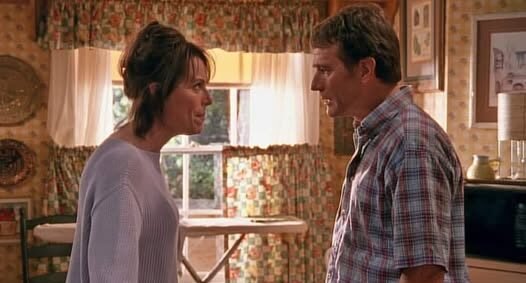
We can forgive bad decisions when we’re young and foolish. But let’s say you do eventually find someone you continue to love long after your hormones have settled down. How do you make it last?
While romantic love can be instant, attachment takes longer to build. You’ve got to really get to know someone for pair bonding—and that’s why attachment takes its sweet time.
This is particularly evident in Malcolm in the Middle, a timeless sitcom from the early 2000s that follows the ongoings of a working-class family, featuring the hysterical coupling of Bryan Cranston (who would go on to play Walter White in Breaking Bad) and the scary-good Jane Kaczmarek.
Even though the show is centered on the growing pains of a bunch of brothers—and the hilarity of being a genius among them—it’s the chemistry between the parents and their kids that sets the tone for the entire show. This includes the laugh-out-loud physical comedy of the lovable but fragile Hal, and his relationship with the tough-as-nails Lois. When asked how he brought his character to life, Cranston revealed:
“The entire family was already cast and they couldn't find the dad in the pilot episode. I think I have three or four lines and that's it. And so, I was trying to find the core of…every character that I do, I look for what's at the emotional center of this person. I’m looking for different ways. And I realized “oh well, just keep this simple.” I wrote down all the qualities that the Jane Kaczmarek character who played Lois had. Fierce. Tough. Resilient. And I go, “Oh. Fierce = Wimp. Tough = Soft. Resilient = Cracks immediately.” I just went the complete opposite. And one of the [things] that I came to was “fearless” and I went, oh he's frightened—that's it! He's frightened of everything! And so, once I grabbed onto that, everything in his life…he's frightened about being fired, about being a bad parent, about…you know…his wife leaving him, about spiders, about heights. It's like, you know, he was frightened about everything—and from that point, everything kind of grew.”
An excellent case of “opposites attract”.
Saying how you feel
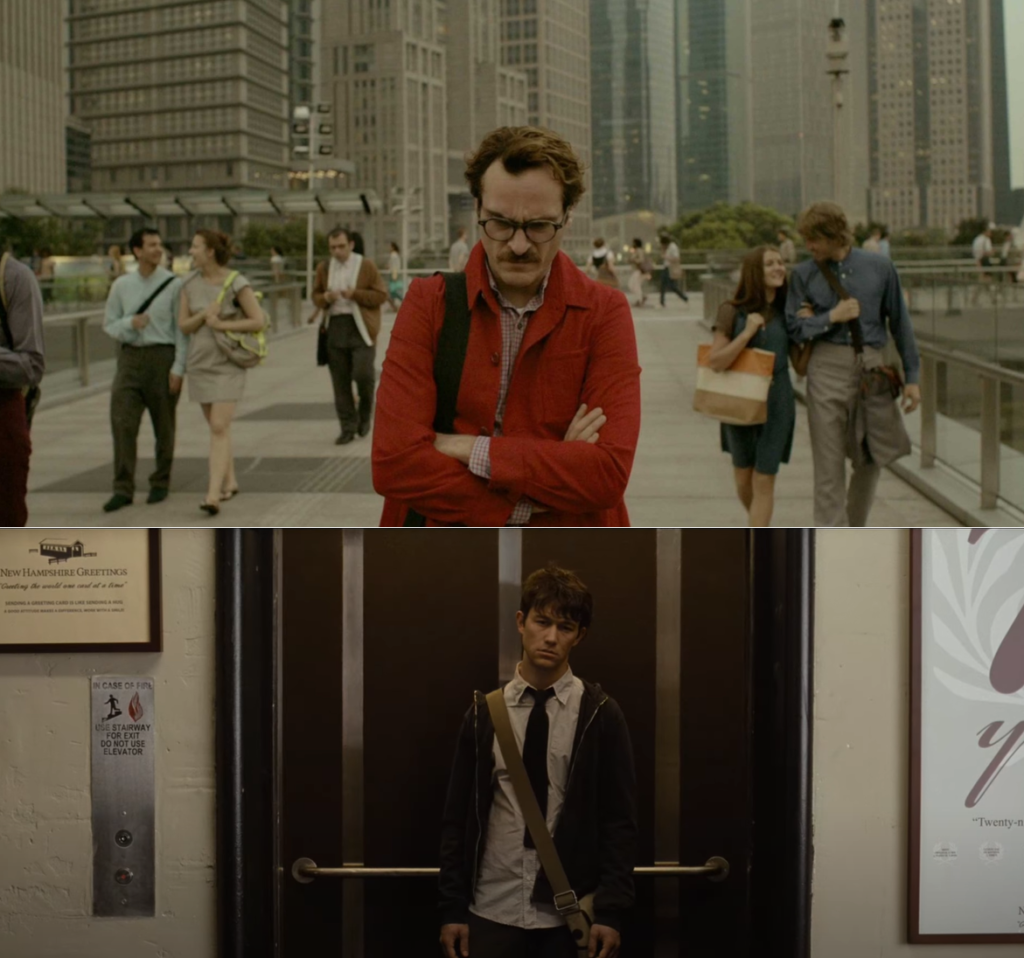
There are two popular films in the romance genre that feature a copywriter as a protagonist: 500 Days of Summer and Her. Both stories deal with love. But one is set in the early 2000s where greeting cards are off-the-shelf products you can hide behind. The other is set in the future, where human-written letters are super personalized, beautifully phrased—and outsourced.
Both protagonists are sensitive, lonely, and struggling with intimacy. But through their wildly different journeys, they realize the same thing. That love takes courage, honesty, and a willingness to let go and evolve.
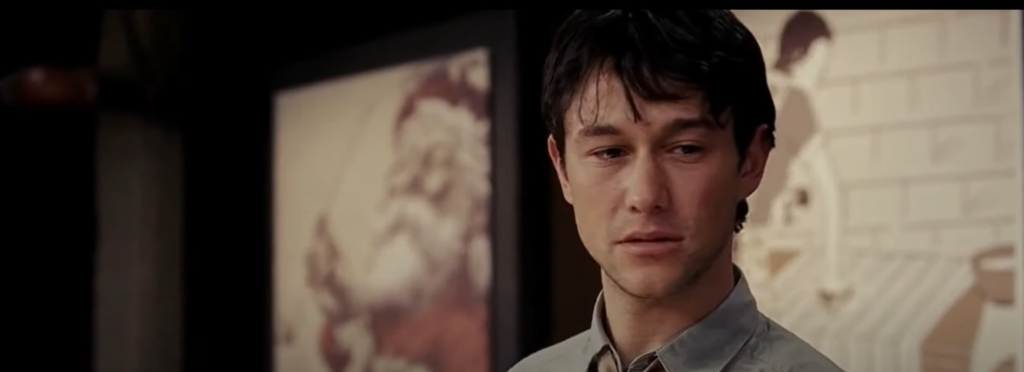
With all this bullshit around AI-generated writing, these films remind us of the complexity of human relationships and the importance of acceptance and self-awareness. Tom finally stops feeling sorry for himself and pursues his real passion. Theodore lets go of what never belonged to him and finally does for himself what he’d been doing for strangers at work: write a letter to a loved one that speaks from the heart.
PSA. If you really want to say something important—something meaningful—allow yourself to say it in your own words. We owe it to ourselves to say how we really feel. Typos, cringe, bad poetry and all. Even if the person you’re opening up to doesn’t react the way you want, your future self will appreciate your bravery. You had the balls to express yourself in a world that’s often terrified of honesty.
And worst case scenario, it’ll make you chuckle on a bad day. ¯\_(ツ)_/¯
Growing old together
“We die with the dying;
See, they depart, and we go with them.
We are born with the dead:
See, they return, and bring us with them.”
―T.S. Eliot
In my last post, I talked at great length about loneliness but I didn’t really get into old age. And there’s a good reason for it.
This may or may not surprise you, but at this time, young people are historically lonelier than older people, especially in Canada. There are many reasons for this, but overall, it’s the result of a cultural shift in modern life. The taxing pressures of unaffordable housing, social alienation, hyper-individualized technology, a hypercompetitive job market and a general lack of trust.
Older generations may not totally grasp the bizarre trends of modern life, like dating apps, social media, and the obsession with being rich and famous. But they can certainly teach us a thing or two about how to deal with adversity, such as death, forgiveness, starting again even when the world tells you it’s too late, and most importantly, fully accepting yourself—and the people you love—with all your baggage and imperfections.
We get a taste of this in Martin Scorsese’s heartfelt documentary Italianamerican. The subject of this 45-minute film are Catherine and Charles, the filmmaker’s own parents and the children of Sicilian immigrants in New York City. They share the trials and tribulations of growing up with nothing but family, and the beauty of having a companion through it all.
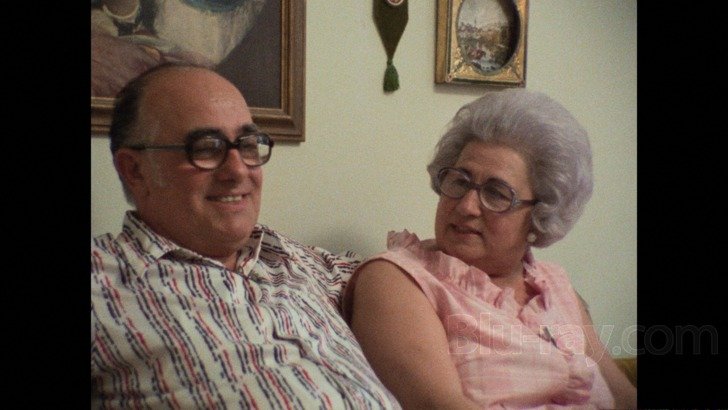
An old married couple, if there ever was one.
Their story reminds us there’s something deeply reassuring about getting older. About caring less about the stuff that doesn’t really matter. Appearances. Status. Career. What people think. We get to experience our second childhood.
Love will continue to awe, confound, infuriate, and heal. And while studying it might be illuminating, it’s ultimately through lived experience and emotional growth that we can truly change our relationship with it. As associate professor of psychiatry at Harvard, Richard Schwartz once put it: “I think we know a lot more scientifically about love and the brain than we did a couple of decades ago … But do we think that makes us better at love, or helping people with love? Probably not much.”
Humans are endlessly fascinating. There’s always something more to discover. So it’s no surprise that one of the secrets to longevity is having enough quality time and maintaining a sense of curiosity and play towards your partner. A healthy balance of separation, closeness, compassion, and desire.
When you’re old, you get another chance to be “you” again—and this fundamentally changes the way we think of love. We look back on all the hoopla around finding the perfect person with the perfect body, the perfect job, the perfect personality only to realize, in the words of Dot Fisher-Smith: “I’m just a compost pile on my way out.”
❓ Here from social media? Here are the answers to “Guess the Film”:
1. The Graduate 2. Eternal Sunshine of the Spotless Mind 3. 500 Days of Summer 4. Her
————————————————————————
👋 Hey, you brilliant specimen! Thank you for reading.
I’d love to know your thoughts. What helped you better understand love? What films, music, books, artwork, or events changed your perspective? Let me know in the comments below!
🎬 Films referenced in this piece: American Beauty by Sam Mendes, (500) Days of Summer by Marc Webb, Cinema Paradiso by Giuseppe Tornatore, Eternal Sunshine of the Spotless Mind by Michel Gondry, The Graduate by Mike Nichols, Her by Spike Jonze, and Italianamerican by Martin Scorsese. Enjoy!
💜 Thank you for supporting my content. If you like what your read, subscribe to my newsletter to get notified when my next post is up!
